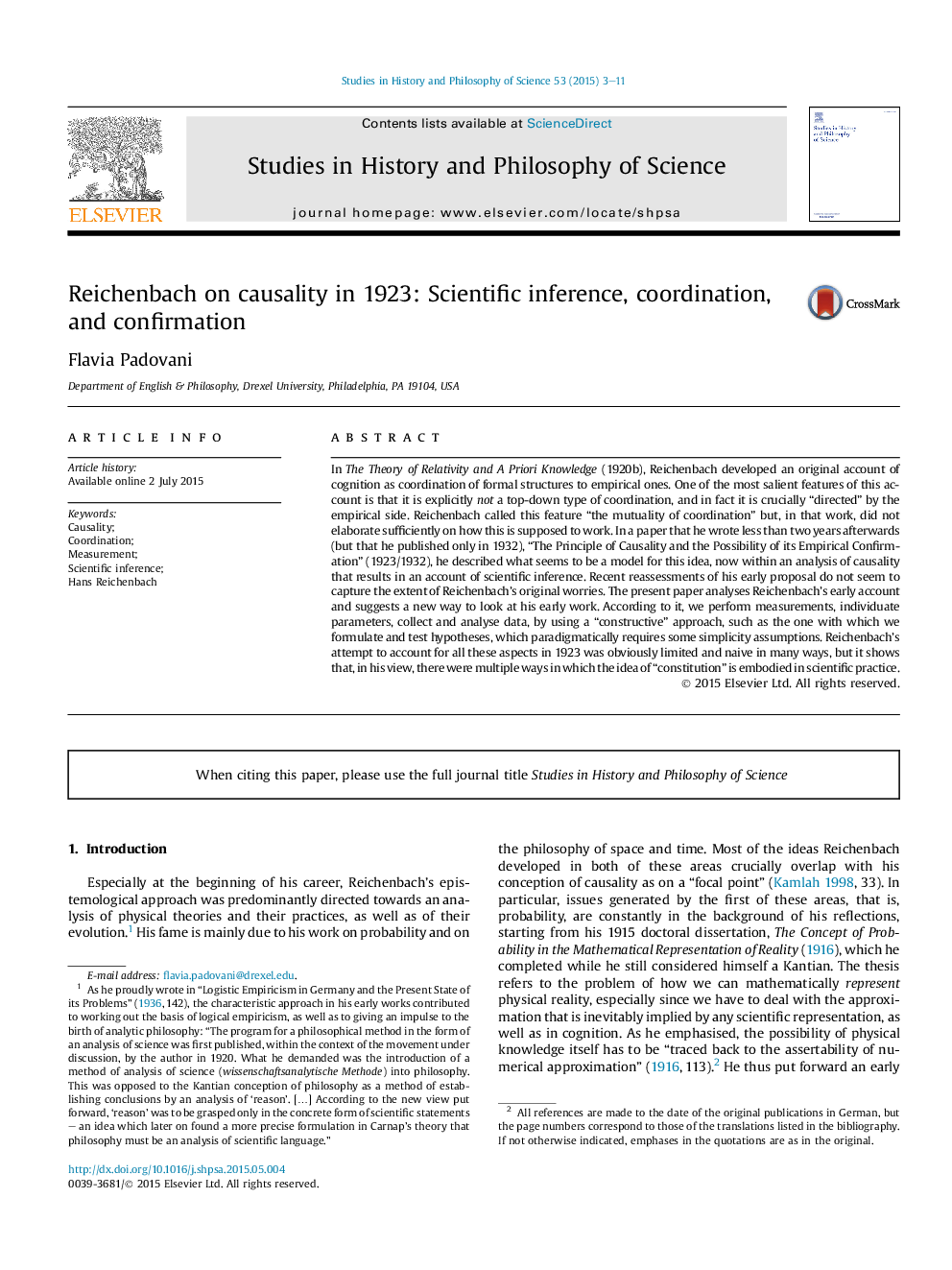| Article ID | Journal | Published Year | Pages | File Type |
|---|---|---|---|---|
| 1160402 | Studies in History and Philosophy of Science Part A | 2015 | 9 Pages |
Abstract
In The Theory of Relativity and A Priori Knowledge (1920b), Reichenbach developed an original account of cognition as coordination of formal structures to empirical ones. One of the most salient features of this account is that it is explicitly not a top-down type of coordination, and in fact it is crucially “directed” by the empirical side. Reichenbach called this feature “the mutuality of coordination” but, in that work, did not elaborate sufficiently on how this is supposed to work. In a paper that he wrote less than two years afterwards (but that he published only in 1932), “The Principle of Causality and the Possibility of its Empirical Confirmation” (1923/1932), he described what seems to be a model for this idea, now within an analysis of causality that results in an account of scientific inference. Recent reassessments of his early proposal do not seem to capture the extent of Reichenbach's original worries. The present paper analyses Reichenbach's early account and suggests a new way to look at his early work. According to it, we perform measurements, individuate parameters, collect and analyse data, by using a “constructive” approach, such as the one with which we formulate and test hypotheses, which paradigmatically requires some simplicity assumptions. Reichenbach's attempt to account for all these aspects in 1923 was obviously limited and naive in many ways, but it shows that, in his view, there were multiple ways in which the idea of “constitution” is embodied in scientific practice.
Related Topics
Social Sciences and Humanities
Arts and Humanities
History
Authors
Flavia Padovani,
